|
Meet Devaki! Devaki is a 1st-year Bioengineering PhD student here at UCLA!
Could you tell us about your current research and lab? I work in Dr. Ajijola’s lab; we are the neurocardiology lab in the UCLA Arrhythmia Center. We mainly focus on studying the relationship between the heart and cardiac neurons, but the lab is very open to other ideas and exploring other realms in neurocardiology and cardiac electrophysiology (EP). Currently I work with mice and am studying sympathetic nerves in the heart, specifically the left ventricle. It’s difficult to isolate each individual type of nerve so I am trying to figure out a way to isolate them and study them individually instead of grouping them as sympathetic nerves. I am also now working with some cardiac electrophysiologists and research scientists on a pig study where they are looking at function of certain nerves under cardiac EP conditions such as myocardial infarction and loss of sensory nerves. From a biomedical perspective, it is important to keep in mind how research findings can result in a therapeutic or advancement in healthcare. Ultimately, what we do with the research matters. As a first year PhD student, I am still in the phase of exploring different areas of the lab and figuring where my interests lie. I do want to focus on the cardiac EP side. I’ve been tackling different projects, reading lots of papers, and deciding where to take my PhD. Maybe if you ask me in a year, I’ll be doing something completely different! What was the most valuable aspect of a research/internship/job experience that you would like to share? My first internship was in high school. I did an internship for two summers at a chemical engineering company where they worked on the films and substrates that go into test screen technology. I gained experience learning how to test different samples, going through the pipeline of testing, and realizing product ideas. Of course as a high school student they didn’t give me that much work, but it was cool to be in that environment and have a chemical wet lab experience. Through this, I knew I wanted to be in science. I kind of got into bioengineering by chance; I was decent at math, calculus was making sense. Biomedical engineering came up on a high school interest test, so I decided to try it out. I went to the University of Utah where I got my bachelor’s in Biomedical Engineering and that was where I had my first research experience. I worked in a cardiac electrophysiology lab with a graduate student to create patient specific models that predict recurrence of atrial fibrillation. We would take in MRIs of patients who have had ablation procedures and MRIs of patients who had recurrent arrhythmias to create the models. That broadened my view of what you can do with engineering and research. There was always the goal of how we can make the current technology better and actually help people with this. I wanted more of my own project, so I took that model and tried to incorporate different anti-arrhythmic drugs. Based on the recurrence of arrhythmia, can we see a pattern for the best drug to prescribe? I got a lot of my own experience out of it and it helped me learn how to write proposals, present my own work, come up with my own ideas, and talk to others about my research. I had some time before I started grad school so I worked at the MedTech division at Johnson & Johnson where they were creating surgical robots to make surgery more non-invasive. I worked on the clinical engineering team as a lab assistant and was able to work with a variety of different engineers and business people. As someone with an engineering background and an understanding of biology, I was in the unique position to act as a bridge between the engineers and people on the business side. The different types of engineers that I got to interact with was crazy. One thing that I would do was that everyday, I would meet with a random person. I would just send them an outlook invitation and we would sit and talk for 30 minutes. Just learning about their journeys was amazing. I got to meet a lot of different people and through these experiences, I really saw myself in industry. I want to bring my skill set out in the world in an actionable way. How have you been involved with BGA? So I just started with BGA in Fall 2022. I wanted to get to know people in bioengineering and interact with faculty since I am new to the school. Since my lab isn’t in the bioengineering department, I thought this would be a great way in. I have met some really cool, interesting, and smart people. I am currently a BGA board member and our mission is to make the opportunities available to bioengineering graduate students more known and to interact with BMES. It’s a really great organization and more people should get involved! Favorite memory at UCLA so far? I can’t say that I have one favorite memory but my cohort is awesome. I have made amazing friends here and they are like my family away from home. Where in the world would you like to travel the most right now? Honestly, anywhere but here, anywhere without work haha! But I’ve been wanting to go to Italy or Spain for a while! Not necessarily backpacking but country-hopping throughout Europe would be nice. If you could instantly become an expert in something, what would it be? Hmm I have always wanted to do a triathlon. The amount of mental power you need to have to do an Iron Man (THE triathlon)! I would love to do one. Running, swimming, and biking back-to-back! ** transcribed from interview **
12 Comments
Meet Shannon Li! Shannon is a 3rd-year Mechanical Engineering major, and one of the Academic Chairs of the 2022-2023 school year!
How have you been involved with BMES? During my first year at UCLA online, I became a part of the Publicity Committee and then one of the Publicity Chairs the following year. I thoroughly enjoyed drawing and designing the graphics for BMES and running the Instagram account. This year, I am one of the Academic Chairs, which has been very rewarding. These past 3 years I have been a member of the Thymine mentorship family as well and believe fully in Thymine supremacy! What are your primary responsibilities as academic chair this year? As an Academic Chair, I get to organize and moderate events that provide academic and career support to undergraduates in the bioengineering or biomedical field. Each quarter, we have 2-3 panels which include talks from graduate programs, Alumni coffee chats, and class planning workshops. On top of the satisfaction of executing event plans, it is enriching to be able to connect with experienced people from the bioengineering fields and learn about their career development from when they were undergraduates. I like learning about all the different possibilities for career paths because there is a sense of comfort knowing there is so much out there for everyone to find success in. Favorite BMES memory? My favorite memory was the BMES Holiday Party during my 2nd year because it was my first year on campus and I was still trying to adjust to college life, which made the experience more memorable. I loved getting to dress up, take fun photos with props, and talk with all the people there, which was very exciting for me especially after a year of seeing people’s faces on Zoom. That excitement has not worn off either, as each year’s Holiday Party, BioE Ball, and other big events are things I look forward to every quarter. Congrats on becoming next year’s BMES External VP! What is one thing you are excited about for next year? Thank you so much! I am very glad to get the opportunity to be a part of leading BMES and moving it forward. As a whole, I can’t wait to welcome the incoming 1st years and see the dynamic of the new general board for next year. I am also excited about the ways that EBoard and general board can evolve throughout the year and hopefully execute some new things for BMES. There’s some new ideas we have that I won’t reveal just yet! If you have had a research or internship experience, what was the most valuable aspect of the experience for you? Through my research in the Lin Lab at UCLA, I’ve learned that a lot of engineering is about not knowing something and then trying out different ideas, adjusting each time until a solution is found. My lab environment encourages just doing and not being afraid to make mistakes, which is what has allowed me to gain the most knowledge and skill. There were times when I questioned if I was capable of learning a new protocol or operating a machine, but when I got to the point when I became capable, I was able to look back and remind myself that I’ll never know what I can do until I try it out. If you could instantly become an expert in something, what would it be? I would like to be able to expertly make jewelry through workshop tools and welding. I’ve seen videos of people effortlessly making jewelry like rings and necklaces so that was the first thing that came to mind. It would be crazy to be able to envision a design and quickly create it from scratch or the backs of metal cutlery, not to mention how satisfying and therapeutic it would be. But also honestly, I would want to be an expert in anything art-related like digital animation and drawing from memory. Meet the 2022-2023 Cell Team PMs! Rika (right) is a 3rd-year bioengineering major and Viên (left) is a 2nd-year bioengineering major!
How have you been involved with BMES? Viên: I joined in my first year as a member of Cell Team as well! I really liked the tight-knit community we had, so I was happy to have the opportunity to be co-project manager with Rika this year. It’s been rewarding to work on improving and expanding the program! Rika: I joined my second year as a member of Cell Team and a volunteer with the Community Outreach RISE team! This year, I’ve been lucky to be a co-project manager alongside Viên for Cell Team, leading a group of 14 undergraduate students. What are your primary responsibilities as cell team PMs this year? Viên: Some of the things we do behind the scenes to make sure everything runs smoothly include creating all the slideshows for modules, ordering and prepping the lab supplies, and coordinating module/lab times! We also write all of the protocols members use in the lab, and organize the Shadowing Program with professors. In the coming weeks, we’ll be working with members to design and execute the independent research project in Spring quarter. Rika: As a Cell Team PM, we’re in charge of leading modules and labs every week for our members to gain hands-on experience on introductory laboratory techniques! Some of these skills include micropipetting, BSC usage, and cell culture. Outside of these weekly meetings, we also host developmental programs such as the Cell Team Shadowing Program, one-on-one meetings for career planning, and informal discussions about research. In Spring quarter, we guide the students to design an independent research project from start to finish, culminating in a poster presentation and Tech Projects Demo Day. Favorite BMES memory? Viên: My favorite BMES memory is definitely KBBQ night! I think it’s a great chance to spend time meeting more BMES members and I had a lot of fun both this year and last year. Rika: This is a hard one! I think I’d have to go with the BioE Ball and Fall BBQ! What do you enjoy most about being cell team PMs? Viên: I really enjoy interacting with and learning about all of our amazing members! Our cohort this year is full of people who are dedicated and enthusiastic to learn about cells, and it’s been both rewarding and fun to get to teach them. Rika: I love the moments when our team members suddenly understand a concept or make STEM related jokes during our labs. It’s been so much fun watching everyone grow more confident in their lab skills and close-knit as a team! If you could instantly become an expert in something, what would it be? Viên: Definitely animation. I love the medium and I’ve spent many, many hours just trying to wrap my head around the basics! If I could become an animation expert instantly, I’d spend so much time working on random video projects. Rika: If I could instantly become an expert in something, it’d be astronautics! I secretly dream of going to space one day ☆ Meet Juhi Mehta! Juhi is a 4th-year Bioengineering major, Spanish minor and BMES president of the 2022-2023 school year!
How have you been involved with BMES? I’ve been involved in BMES since my freshman year, when I joined the publicity committee! I had tons of fun making aesthetic graphics for various BMES events. I also began volunteering for the RISE program, and fell in love with teaching kids! This led me to join board as a community outreach chair in my sophomore year. In my junior year, I served as mentorship coordinator and put on tons of fun social events like KBBQ night and Friendsgiving. Finally, this year, I’ve had the amazing opportunity to be president. I love being a part of this organization and giving back to the bioengineering community. It feels so crazy looking back, and I think my freshman self wouldn’t believe it! What are your primary responsibilities as president this year? As president, my primary responsibilities include supervising all of our chapter’s affairs as well as leading board in all of our various initiatives. I also work with the School of Engineering and the Bioengineering department to set the overall direction of our chapter and bring awareness to student needs and issues. Rather than working on one specific task, I oversee many different tasks, and do my best to support BMES board and BMES members in any way that I can! I hope to make positive changes to the organization and to continue providing BMES members with opportunities to grow in their academics and career, and connect with other bioEs! Favorite BMES memory? It’s hard to pick, but I’d say my favorite BMES memory has to be KBBQ night! It’s always so fun to take a trip to ktown, and the food is always so good! Cooking together is really wholesome and it’s helped me get to know other BMES members super well. Finally, dessert in ktown is always delicious! One class that you enjoyed and would recommend? One class I recommend is BE C147! This class is called tissue engineering: industrial and clinical perspectives, and is taught by Dr. Bill Tawil. Dr. Tawil is an incredible lecturer, and the content of the class is very interesting. Each lecture focuses on a different organ, and starts with the basic physiology and the most common diseases of that organ. Next, Dr. Tawil discusses the most common medical solutions to these diseases that are currently on the market. Finally, we discuss up and coming tissue engineering approaches that aim to treat these diseases. I am very interested in tissue engineering, and this class really helped me understand the market as a whole and the future of the industry. Dr. Tawil really takes the time to explore engineer, physician, and patient perspectives, which was very eye opening and meaningful. If you have had a research or internship experience, what was the most valuable aspect of the experience for you? I am currently an undergraduate researcher in Dr. Li’s lab (Cell and Tissue Engineering Lab), and I’ve been working in his lab for 2 years. My research focuses on the effects of immunomodulation and electrical stimulation on direct cardiac reprogramming. Overall, research has been the most important part of my undergraduate bioengineering experience. I’ve been able to explore topics that I’m very passionate about and learn a lot about how to approach scientific problems. More importantly, I’ve challenged myself, and as a result have grown to be a more confident person. I would highly recommend anyone who is interested in research to get involved and email professors asking about open positions! If you could instantly become an expert in something, what would it be? I’d have to say color theory. I love painting, but sometimes mixing the perfect shade can be really challenging! If I could, I’d want to be as talented as the painters on social media who can match the color of any random object within a minute or two. Meet Rohan Chawla! Rohan is a 4th-year Bioengineering major and one of the current academic chairs of the 2022-2023 school year!
How have you been involved with BMES? I’ve been a member of BMES since freshman year, and I’ve been involved in a lot of ways! I was a member of Build Team my first year and Design Team the next year. I was also a Committee Member in my second year, as part of the Community Outreach Committee. I was then Community Outreach Chair last year, and now I’m one of the Academic Chairs! What are your primary responsibilities as academic chair this year? As an academic chair, my main goal is to connect undergrads with the resources they need to succeed, both as students and future professionals. This mainly involves hosting workshops and panels for students to ask questions and speak to experts in areas like resume development and class planning. I am also in charge of maintaining our club’s alumni network, and oversee our club’s alumni mentorship program. Favorite BMES memory? Hmm, this is pretty hard, but I would probably have to say BMES Bake-Off last year. It was super fun to not only make super yummy deserts but also eat everyone else’s food and hear all the commentary from the MCs. One of the best events of the year, and I highly recommend all members go! One class that you enjoyed and would recommend? I used to say BE 175, but now that it’s required, I guess everyone has to take it and it doesn’t count. I personally really liked learning about how really complex biological data can be analyzed and all the different inferences it is possible to make, as well as Dr. Meyer’s teaching style. Outside of that class, the other BE class I really enjoyed was BE C147: Applied Tissue Engineering. The class is super interesting, and you get to learn about the industrial applications of tissue engineering and all the cool products out there that use actual cells and tissues to treat people. Dr. Tawil is also such a great guy, and there are so many cool guest speakers! Outside of BE, I would definitely recommend taking Ling 1, which I thought was super cool and taught me a lot about how languages and words work. If you have had a research or internship experience, what was the most valuable aspect of the experience for you? I’ve done both research and an internship! I’ve been a member of Dr. Kamei’s lab since my freshman year and I was a Digital Sciences Intern at Genentech last summer. In terms of research, I would probably say that the most valuable part of my experience was learning how to tackle open-ended problems with basically no prior experience in that area. So much of research is learning things on the fly, and systematically attacking problems that you usually have never dealt with before. But, it is definitely super rewarding, and it can be so fun to see the tangible impacts of all the concepts you learn in your classes. For my internship, I thought it was super cool to learn more about the industrial applications of our degree, and how pharmaceutical companies actually work. There are so many different steps involved in discovering, testing and manufacturing a drug, and it’s so rewarding to be able to have a hand in that process. It was also super informative to learn about all the different roles outside of bioengineering that exist in biotech, and how different technologies are involved in improving current standards of practice. If you could instantly become an expert in something, what would it be? Hmm, another hard question. I would honestly love to be super good at surfing. Even though I went to high school in SoCal, I’ve never learned how. And I feel like it seems so fun + you look super cool :) Meet Angela Lu! Angela, a 4th-year Bioengineering major, served as the president of BMES for the 2021-2022 school year — read on to learn more about her! How long have you been involved with BMES? I’ve been involved in BMES all four years of college— I started out on Industry Committee my first year and then was Industry co-Chair, Academic co-Chair, and President each respective year! I’ve also had the opportunity to be a member of Guanine, Thymine, and Adenine families while in BMES :) What are your primary responsibilities as President? As President, I oversee the entirety of the club and support the VPs and Chairs in any way I can! I also set the primary goals for the club and communicate with outside organizations as well as the Bioengineering Department. What do you enjoy most about your position? In addition to having the opportunity to help lead the club, I’ve also enjoyed being a big supporter of BMES! It’s been inspiring to see everyone on Board grow and watch their creative ideas come to life. I’ve loved meeting new people at many of our events, too! Which family are you in? Adenine 💜 Favorite BMES memory? BMES Thanksgiving! This was a super fun potluck-style event— I enjoyed trying everyone’s cooking and baked goods while catching up with friends :) Favorite class you've taken at UCLA? AAS 112C— Asian American Creative Writing! Taking Asian American Studies courses throughout college has definitely been a much needed break from the STEM classes in the BE major. I had always been interested in creative writing and wanted the opportunity to explore it a bit more through this course! It was a unique experience hearing the life stories of other Asian American students as we bonded over sharing our poetry and prose pieces. What do you like to do in your free time? Dance, volunteer at the animal shelter, and bullet journal! Meet Neha Iyer! Neha is a 4th-year Bioengineering major as well as one of our Industry Chairs for the 2021-2022 school year — read on to learn more about her!
How long have you been involved with BMES? I've been on BMES since I was a freshman! I first got involved through build team which was a great experience to build my technical experience. Then I was a publicity chair, and now an industry chair for the last two years! What are your primary responsibilities as Industry Chair? As industry chairs, we organize large events like the annual Biotech Career Fair and Science Vendor Expo. We also hold smaller events like professional development workshops and company infosessions. Our goal is to foster company ties and help students access resources to get an industry internship or job. Which family are you in? Guanine! Favorite BMES memory? I loved the Holiday Party - that was so so so fun. The activities were great! My favorite BMES even is the Holiday Party because it's a fun chance for everyone to get dressed up, play games, celebrate the holiday season, and hang out with each other. What do you like to do in your free time? Pretend to be a coffee connoisseur, trick my friends into watching horror movies with me, read into co-star horoscopes Meet Dr. Dino Di Carlo, a member of the Bioengineering department. Read on to learn more about him! Background? BS and PhD at UC Berkeley. 2 years as a postdoc at Harvard Medical School. Professor at UCLA since 2008. Overview of Research? We develop tools to automate life science research, diagnostics, and drug discovery at the ultimate "quantum" limits of single cells and molecules What courses do you teach? BE 255, BE 298: Biotechnology of Cell Therapies What are your hobbies? Gardening, Traveling (when it is safe!), Eating :) If you had a time machine, when would you travel to and why?
The Future...hopeful of seeing the immense technological and scientific progress. If you could tell your undergraduate self anything, what would it be? Definitely learn the O Chem! If you had a theorem or special number named after you, what would be the first thing you do to celebrate this? Travel to Tokyo and have a fruit parfait at Takano's fruit parlor in Shinjuku. Meet Kelly Tamura! Kelly is a 1st-year Bioengineering major as well as one of our new Mentorship Heads for the 2021-2022 school year — read on to learn more about her!
How'd you hear about BMES? I got an email about the first general meeting and I decided to check it out! How long have you been involved with BMES? This year I was a permanent member on the BMES cell team and I was apart of the Adenine family. I had so much fun meeting all the other bioengineers that I decided I wanted to be more involved for this upcoming term. What are your primary responsibilities as a Mentorship Head? Making dope social events for members to get to know each other! To what are you most looking forward about your position? I'm really excited to meet a ton of new people - I think that's the greatest. What's one thing you've learned from BMES this year? I'm starting to learn from the past mentorship heads about how to create a fun community so that has been cool. Which family are you in? Adenine! Favorite BMES memory? I loved the Holiday Party - that was so so so fun. The activities were great! Favorite class you've taken at UCLA? Bioengineering 10! I loved reading the articles and hearing researchers talk. It was very inspiring! What do you like to do in your free time? I love listening to music and doing anything active (one of my favs is looking like an absolute fool playing tennis). Describe yourself as a Care Bear. I'd be an orange Care Bear (my fav color) with a planet or something celestial as my belly badge, and I'd like the power of teleportation. Anything else you'd like to share? Cream cheese frosting ruins red velvet cake and I stand by that. You've seen the BMES Board Spotlights; now get ready to be introduced to some of the Bioengineering faculty here at UCLA! Meet Dr. Aaron Meyer, a member of the Bioengineering department as well as the Bioinformatics IDP. Read on to learn more about him! Background? I was a UCLA undergraduate student (graduated 2009). Then went to MIT Biological Engineering for my graduate education. Overview of Research? We build computational models of how cells respond and communicate in our bodies. Some of this is in cancer, where we've been exploring how we can model and overcome cell-to-cell heterogeneity in tumors. We as a community usually build models of the "average" cell, which is completely inaccurate in cancer. Tumors are especially hard to treat because they are essentially complex communities of cells that can adapt and respond. Especially since coming to UCLA, though, most of our work has been looking at the immune system, which is similarly an adaptable collection of cells. We build models of, for example, how antibodies interact with our immune cells to coordinate immune responses. We've also had the opportunity to work with others at UCLA who are performing large-scale studies of people's immune responses to viral infection, bacterial infection, organ transplant, etc, and we help make sense of this incredibly complex data. It's been extremely rewarding because (1) there is just so much data available, and a real need to be able to find patterns and make sense of it; (2) we get to work with experts in so many different areas of science and medicine; and (3) what we find has such an immediate potential to help people. What courses do you teach?
What are your hobbies? First, cycling. I try to go at least once a week and get in ~20–50 miles. It's time to get out, decompress, and sometimes think about something without distractions. It's also a great way to explore, and LA is a wonderful place for it. Currently, I'm preparing for a ride across Iowa with a friend this summer. Second, science fiction in all and any forms. If you could tell your undergraduate self anything, what would it be?
Read even more! Read more science, scientific articles, fiction, non-fiction. It's a source of ideas, and so much of what I do now is written communication. If you had a theorem or special number named after you, what would be the first thing you do to celebrate this? A big slice of cake. :-) |

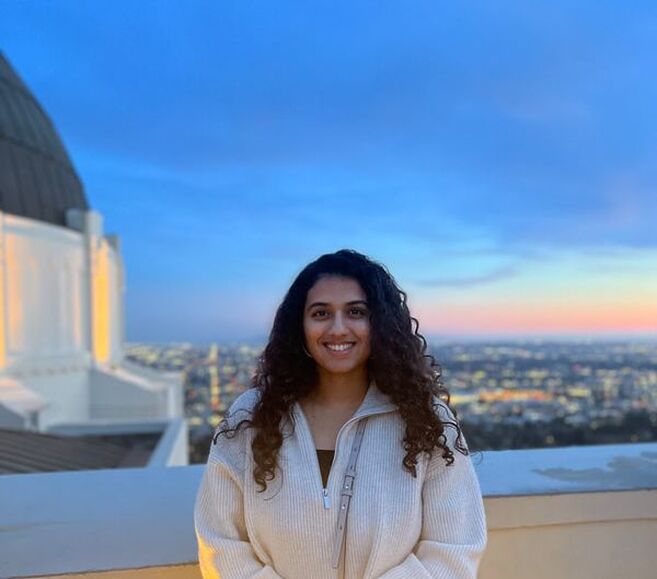
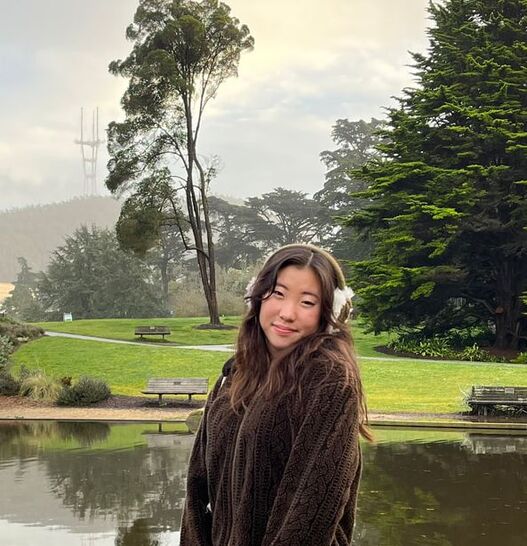
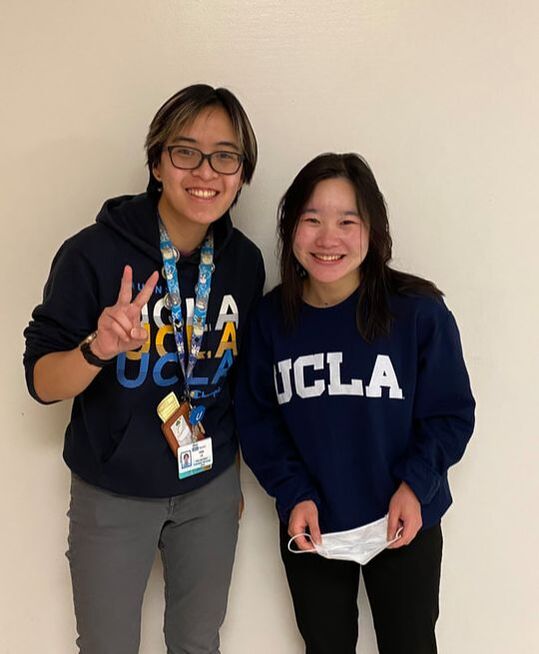
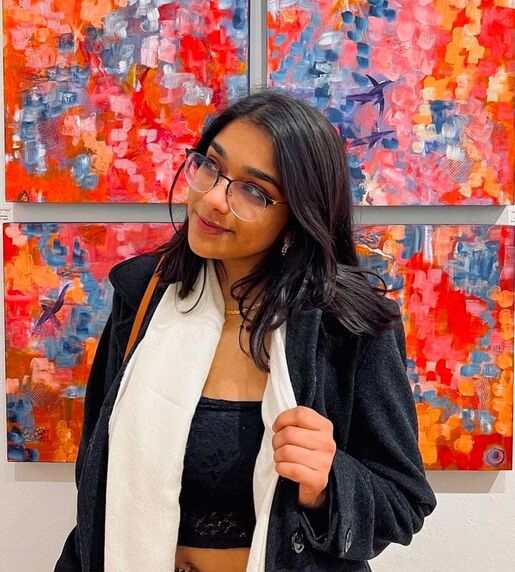
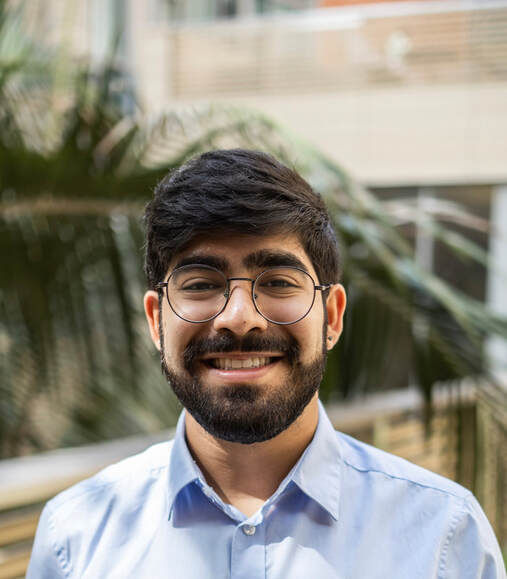
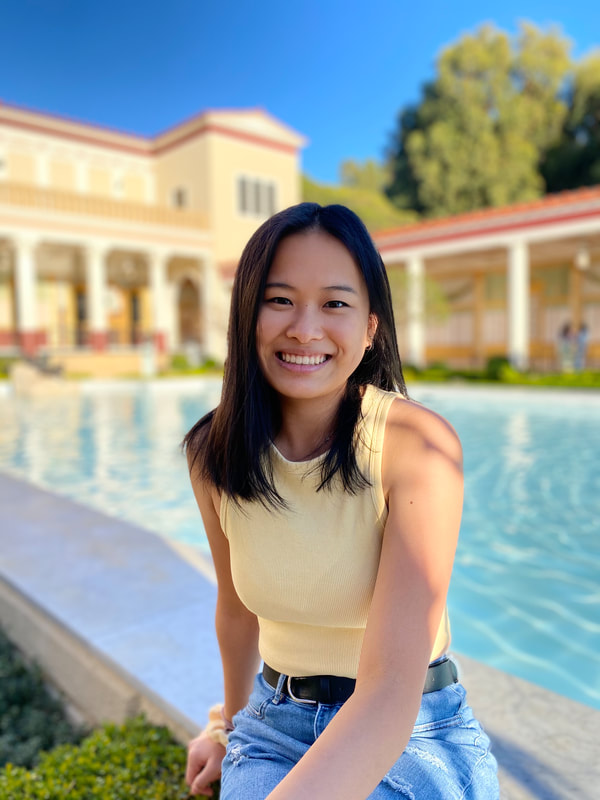
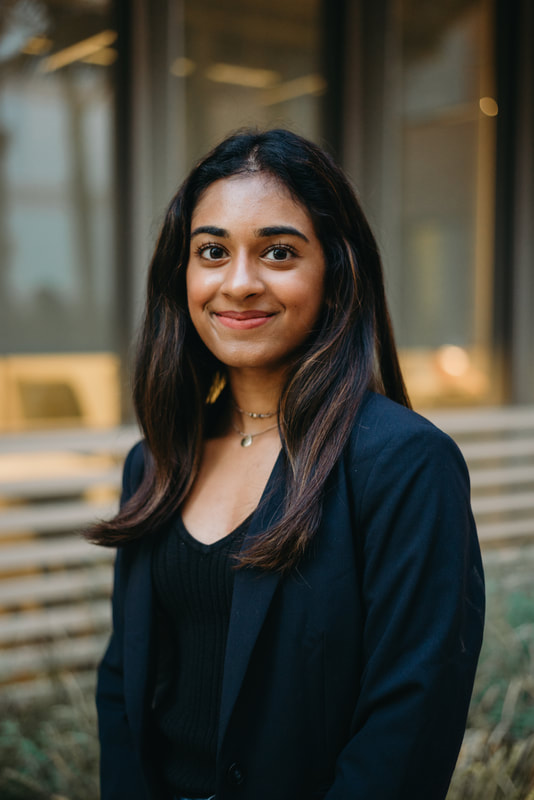
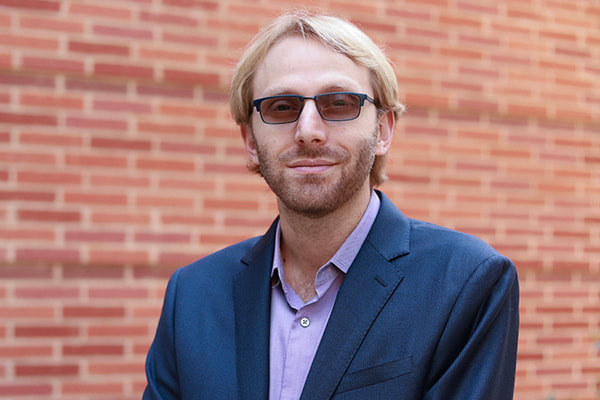
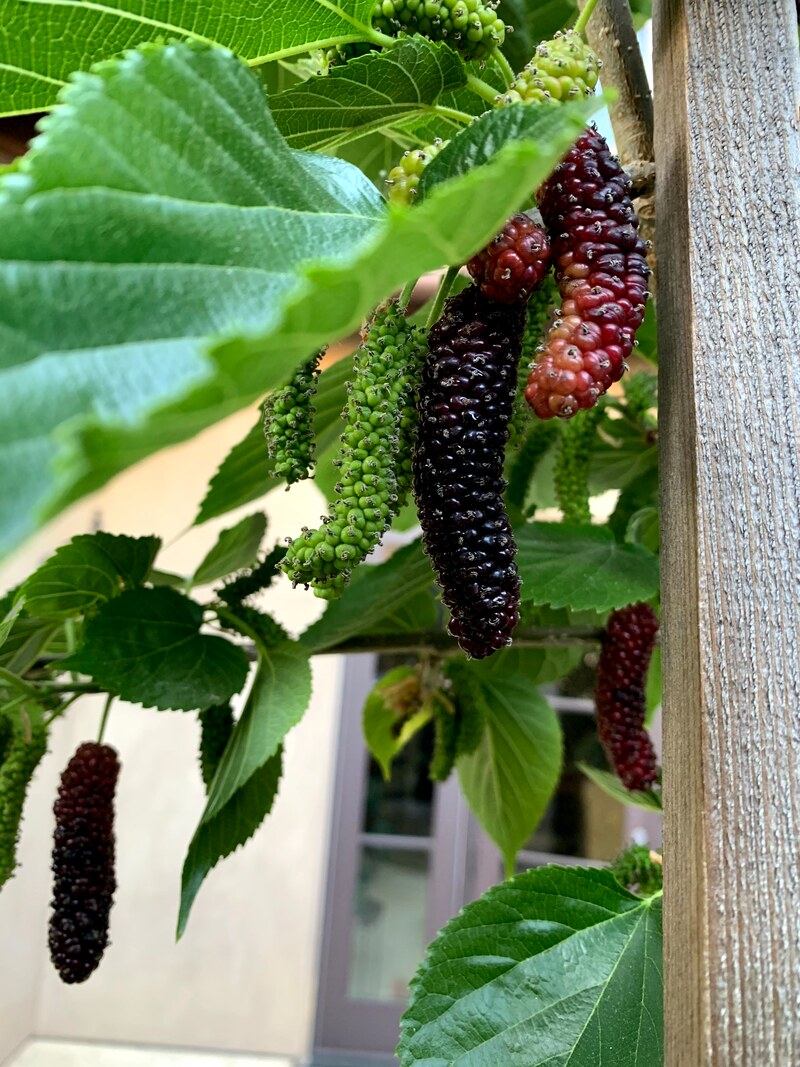
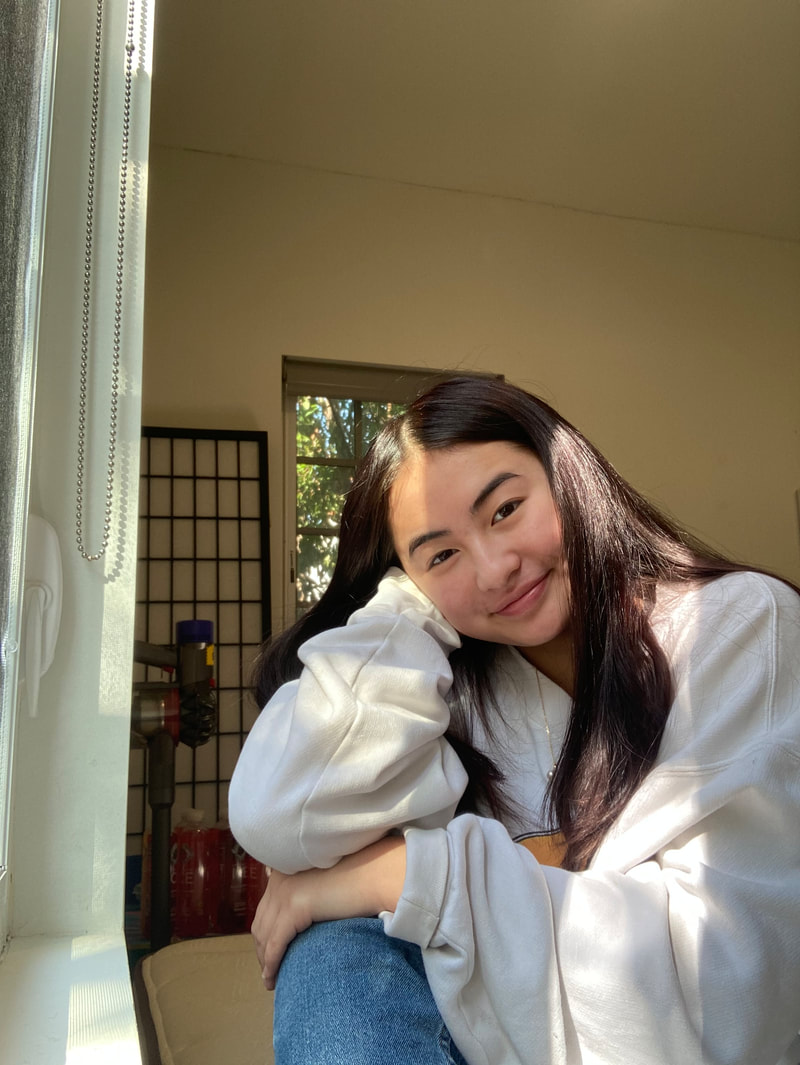
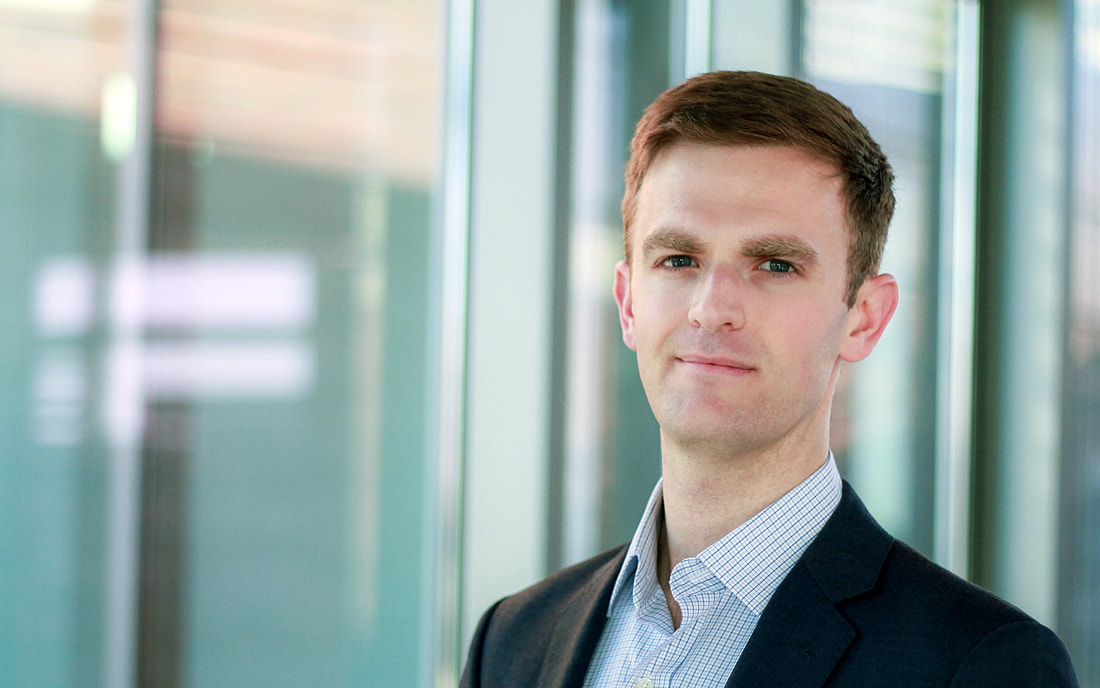
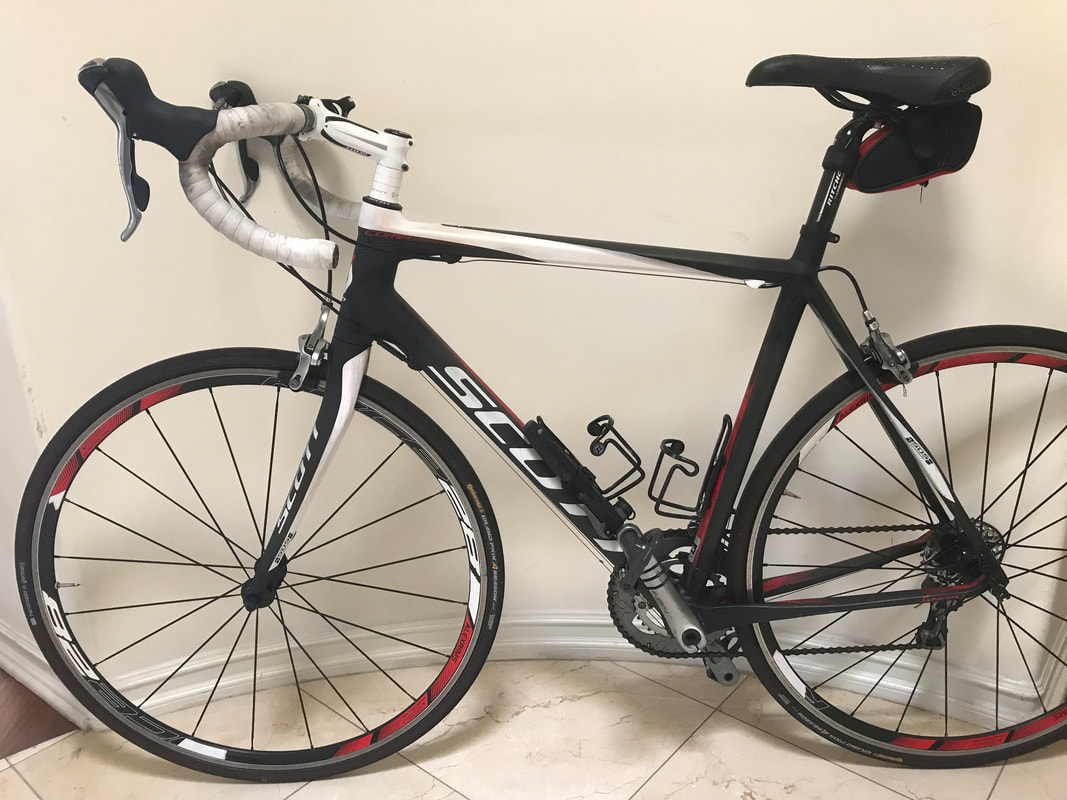
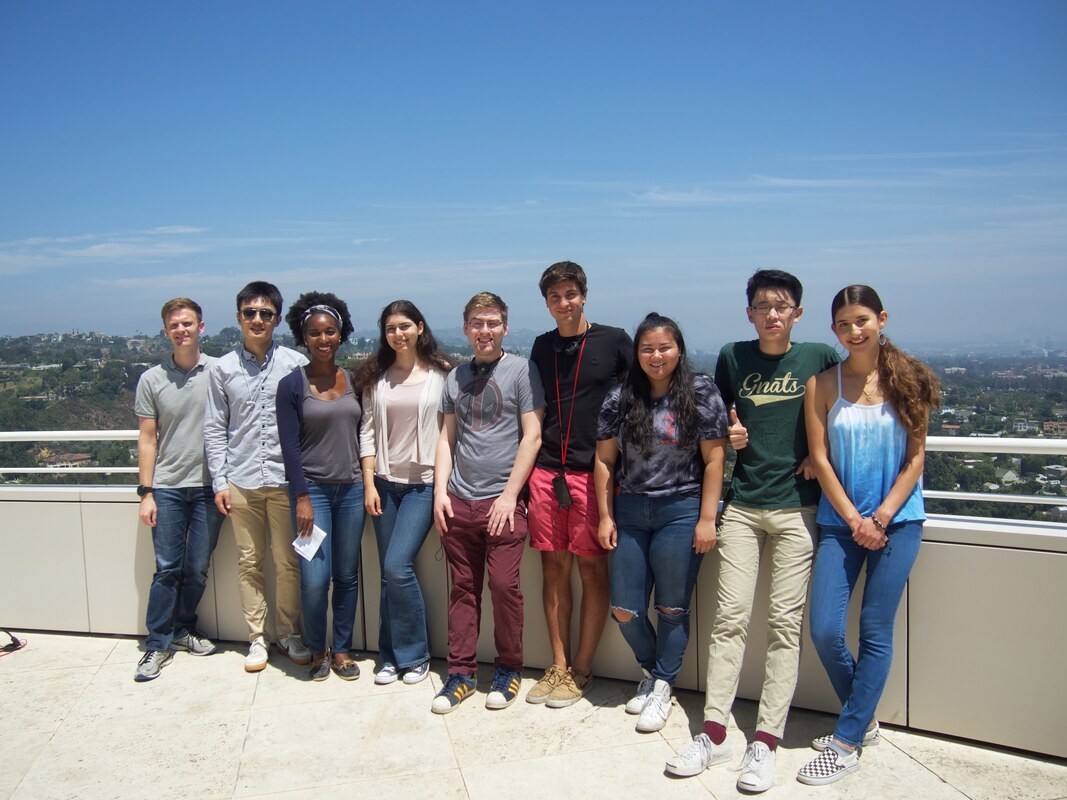
 RSS Feed
RSS Feed